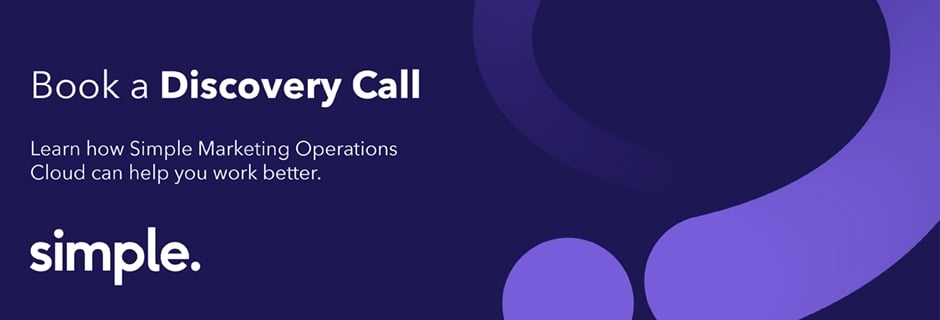
3 Ways to Support Ethical Standards when People Don’t Report Misconduct
By Jodie Byass
Disturbing news from a recent report on ethics in the business world: almost one in four employees are aware of misconduct in the workplace, but only one in three of those workers have spoken up about it. “Worrying,” was how The Ethics Centre interpreted the statistic.
The Ethics at Work report also found one in 10 people (13%) have felt pressured to compromise their ethical standards in the workplace.
Managers seem to feel the heat more than workers — they were more likely (by 9%) to feel pressure to compromise their ethical standards than those not in a management position.
Meanwhile, employees who have felt pressure to compromise their ethical standards were also more likely to feel their manager failed to promote or reward ethical behaviour.
Marketing, in its many forms, is both the front line and ‘face’ of many of the institutions that have suffered from high-profile ethical and regulatory breaches in recent times, and a major fault line of risk.
In an ideal world, people would speak up if they witnessed behaviour they thought was unethical, or if they thought their company had crossed the line into misconduct or dishonest behaviour: they might see claims on the company website that can’t be substantiated, product claims that over-promise, even advertisements that fall foul of community standards.
But what happens when good people stay silent? The longer it happens, and the more people who stand by, the bigger the eventual fallout. Australia’s Royal Commission into misconduct in the banking industry offers some insight, tipped to cost AUD $2.4 billion in new clean-up costs alone. In Britain, lenders have already set aside almost £40 billion pounds to compensate customers who were mis-sold payment protection insurance. US bank Wells Fargo reserved USD$80 million to remediate 570,000 consumers for auto insurance they did not need.
The Governance Institute’s third annual Ethics Index, based on Ipsos research, shows these and other scandals have had a devastating impact on how the finance sector is perceived. Its net ethical perception score was well into negative territory at -27 (the difference between those who rate it as ethical — 28% — and those who rate it as unethical — 55%.
Perhaps most shockingly, two-thirds of workers who believe they have witnessed misconduct in the workplace don’t speak up about it, according to the report. Perhaps that is not surprising — history shows whistleblowers traditionally are not treated well.
But even in our less-than-ideal world, technology, culture and process can be brought to bear to help organisations and their people stay on the right side of the ethical divide. Here are some ways organisations can address the ethical dilemma:
1. Implement an ethics program
People whose companies have an ethics program are significantly more likely to feel that their organisation acts responsibly in business dealings, at 84%.In comparison, less than half of those without an ethics program (49%) feel their company behaves responsibly. Generally, society is operating at a “somewhat ethical” level, according to the surveyed group of about 1000 people.
An ethics program involving education, training and the establishment of reporting and resolution processes serves to keep ethical issues front of mind and provide avenues for addressing ethical dilemmas or possible misconduct in the workplace as they come to light, rather than waiting for individual whistleblowers to step forward.
It also addresses the cultural element of ethics in the workplace, allowing companies to develop individual approaches suited to their particular brand, position and workforce.

2. Develop and adhere to a code of conduct
A code of conduct should define and enshrine the behaviour companies want to see in the workplace, on an interpersonal level as well as when it comes to how companies deal with their customers.
Ideally, there should be one in operation at the industry level; for example, Britain’s National Union of Journalists’ Code of Conduct sets out the principles of how British journalism should be practised, enshrining values such as honesty, accuracy and fairness, amongst others.
The Australian banking sector’s Banking and Finance Oath is a voluntary pledge, billed as a Hippocratic Oath for bankers, that was launched in 2010 and whose wording includes the affirmation that “trust is the foundation” of the banking profession.
It includes pledges to serve in good faith, compete with honour and “help create a more sustainable future” and “just society”.
3. Use technology to support compliance and proactively identify breaches
But while the banking industry has had its Banking and Finance Oath in place for some time, this was not enough to counteract the industry-wide pressures and profit-driven culture that caused so many serious ethical and regulatory breaches within individual financial services companies.
Measures such as training programs and codes of behaviour can and should be supported by the measured use of technology to proactively address possible misconduct, to flag possible ethical issues and to help ensure compliance with regulatory requirements.
Marketing, in addition to high-profile advertising campaigns and digital marketing campaigns run out of head office, occurs in an ever-increasing variety of channels, including emails from agents, marketing collateral produced by local area franchisees, information supplied verbally by call centre staff — and many, many more.
At Simple, we argue there should be 5 lines of defence in marketing compliance and risk management.
One of those should be the use of an MRM platform that builds compliance into your marketing processes, makes marketing activity visible to approvers, stores approved assets and provides an audit trail.
Get the checklist: 10 Steps to Mastering Marketing Compliance
But new technology — such as artificial technology can now be harnessed to help streamline and reduce daily compliance burdens, and even to predict in near-real time when standards are in danger of being breached.
With the full knowledge of the workforce, AI can be applied to complement the traditional spot-checking practices of internal audit teams. For example, natural language processing can be enlisted to evaluate emails sent by third parties such as agents to identify possible misconduct or ethical breaches, and problems can quickly be identified and remedied.
Technology can be used alongside cultural programs, industry education and process-based changes to extend the reach of marketing risk and compliance teams in a period when the volume of work through marketing teams is increasing, and to support ethical behaviour in the workplace.
Simple’s Marketing Operations Cloud helps enterprise marketing teams and in-house agencies manage work and risk to create profitable customer experiences that drive growth. To find out how reach out to one of our representatives.
